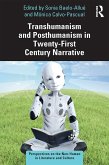In his book The End of Education: Toward Posthumanism, William V. Spanos critiqued the traditional Western concept of humanism, arguing that its origins are to be found not in ancient Greece's love of truth and wisdom, but in the Roman imperial era, when those Greek values were adapted in the service of imperialism on a deeply rooted, metaphysical level. Returning to that question of humanism in the context of the United States' war on terror in the post-9/11 era, Toward a Non-humanist Humanism points out the dehumanizing dynamics of Western modernity in which the rule of law is increasingly made flexible to defend against threats both real and potential. Spanos considers and assesses the work of thinkers such as Giorgio Agamben, Alain Badiou, Judith Butler, Jacques Rancière, and Slavoj Zizek as humanistic reformers and concludes with an effort to imagine a different kind of humanism-a non-humanist humanism-in which the old binary of friend versus foe gives way to a coming community without ethnic, cultural, or sexual divisions.
Dieser Download kann aus rechtlichen Gründen nur mit Rechnungsadresse in A, D ausgeliefert werden.









